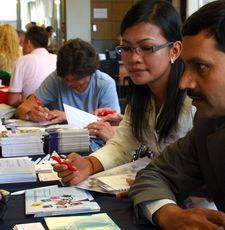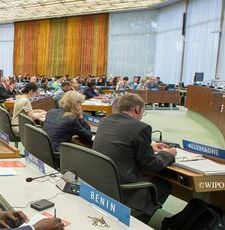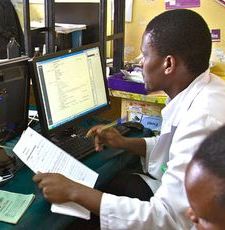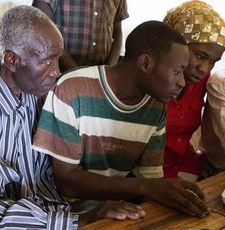ABOUT THE RESOURCE
In 2011-2013 EIFL provided financial support to 34 projects that implemented national and institutional open access (OA) advocacy campaigns to reach out to research communities and OA publishing initiatives.
Through small grants and support from their own institutions, the projects engaged in a wide variety of campaigns and activities, including: holding workshops, creating websites, building institutional OA repositories, creating e-learning courses, and implementing OA publishing platforms.
The case studies resulting from the projects reveal impressive first-time achievements and will help increase the availability of research literature in developing and transition countries.
Learn more about the key achievements for this national OA campaign in Botswana below. You can access the full case study (strategies, tactics and tools, success stories and lessons learnt) by clicking on the download button.
About the project in Botswana
In 2009 the University of Botswana (UB) implemented Research Innovation and Scholarly Archive (UBRISA), the OA digital repository that showcases UB’s research (735 records are currently available and growing). UB Library is currently piloting OA e-thesis project.
In addition, the Botswana College of Agriculture (BCA) is progressing with its OA digital repository (implementation started in 2007) to make the college intellectual output, including grey literature, openly available and preserve the scholarly work in digitalized format to enhance research and teaching.
However, there still remains a lack of widespread understanding of OA and its benefits. There are some departments that do not contribute their research to UBRISA and there are many higher education and research institutions without OA repositories (37 institutions are BLC members). This 2011 project identified the main audiences to target for an advocacy campaign, with the hope that by conducting a broad reaching campaign the results would be increased awareness across a variety of stakeholders and increased interest in creating and depositing research in OA repositories.
Key Achievements
- Creation of an OA Advocacy committee consisting of a variety of stakeholders in order to encourage broad participation in planning and implementation of all activities.
- 20 Botswana Library Consortium (BLC) members attended OA training, learning about OA policy issues and also implementation of OA institutional repositories (IRs).
- First celebration of OA week in Botswana.
- Over 150 researchers, research managers, journal editors, students and librarians attended the OA week events and gained better understanding of OA.
- The Department Agricultural Research at the Ministry of Agriculture brought all their researchers to attend the OA week launch event and workshop and also participated in the OA Week activities through attendance, presentations, as well as display of their research products and demonstration of what the department does in the area of research to eradicate poverty in Botswana.
- Following the OA week celebrations some research institutions/departments, particularly the Department Agricultural Research at Ministry of Agriculture were eager to start an OA IR to make their research output freely available to the public. The UBRISA (University of Botswana Research, Innovation and Scholarship Archive) Team has already started assisting the Department of Agricultural Research. And Botswana College of Agriculture (BCA) is progressing with its OA IR, including developing a draft policy document.
- 11 journals published by UB are in the process of becoming OA through UB’s Library and Office of Research and Development.
SHARE / PRINT









